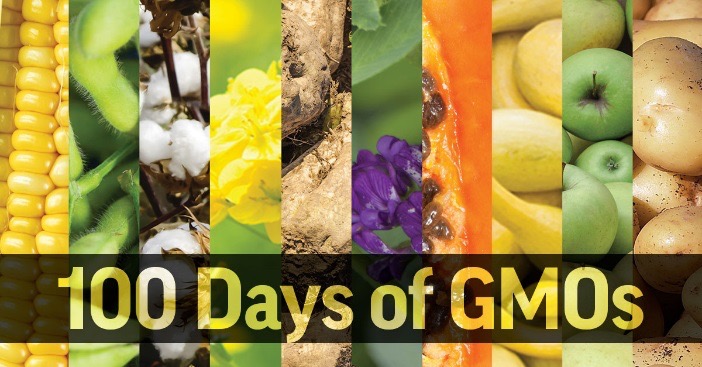This post was originally published on Forbes on October 15, 2015.
Post written by Kate Hall. Kate Hall is managing director of the Council for Biotechnology Information and GMO Answers spokesperson.

It’s in our nature to question things we’re not familiar with and seek answers. Sometimes that impulse is driven by fear, but other times we’re guided by a curiosity to understand the world around us.
The answers we seek might be at our fingertips just by doing a simple search engine query. But, it can be difficult to separate what’s fact from what may be a well-constructed and emotional story that is actually misinformation. In honor of International Skeptics Day celebrated earlier this week, this issue seems ripe for exploration.
It’s the recognition of that public curiosity for the facts and an appreciation of the healthy skepticism essential to the scientific process that led us to create GMOAnswers.com, inviting consumers’ questions about genetically modified organisms (GMOs) – no matter how complex or controversial those questions might be.
What sets GMO Answers apart is that a community of more than 175 experts, ranging from farmers and academic researchers to nutritionists and agribusiness experts, are taking the time to address each question that gets submitted to the site using verifiable scientific information. These experts are at the forefront of their fields and have first-hand knowledge of GMOs and what research has been conducted to study the topic.
Why is that important? As critical thinkers across the globe research the issues they care about, it’s easy to get lost in a sea of online resources that are contradictory or based solely on compelling, emotional arguments. In situations like this it’s key to follow the science, especially if an issue has been studied from multiple angles and the research has been peer-reviewed. Our goal is to provide consumers with a wide variety of information and scientific resources so that they can do their own fact-checking and make up their own minds.
After answering more than 1,000 questions, we launched “100 Days of GMOs” this week. GMO Answers is sharing one question per business day of the 100 most asked and accessed questions posted to the website across its social platforms, using the hashtag #100DaysOfGMOs.

A few of those questions include: Do GMOs cause cancer? Is it true that GMOs require massive amounts of pesticides, herbicides and fungicides? How much of our food in the U.S. is genetically modified? Follow along on Twitter, Facebook and Pinterest.
Consumers have a desire for knowledge about GMOs and they want to see all the evidence so that they can make up their own minds. At the same time, the scientific community is passionate about sharing their research and knowledge with consumers to help them understand the science and how GMOs help farmers grow healthy, nutritious food in a sustainable way.
At the end of the day, it’s up to the individual to decide where she or he stands on GMOs. The best we can do is continue to be a resource for information and engage in an open discussion about GMOs – no matter how tough. We invite skeptics from all walks of life to keep the questions coming; we’re looking forward to the conversation.